By Paul Mamattah
To combat the HIV epidemic and promote an inclusive HIV response, the Ghana HIV and AIDS Network (GHANET) in collaboration with the Network of Persons Living with HIV (NAP+), and other stakeholders, have organised a health walk as part of activities to mark this year’s World AIDS Day.
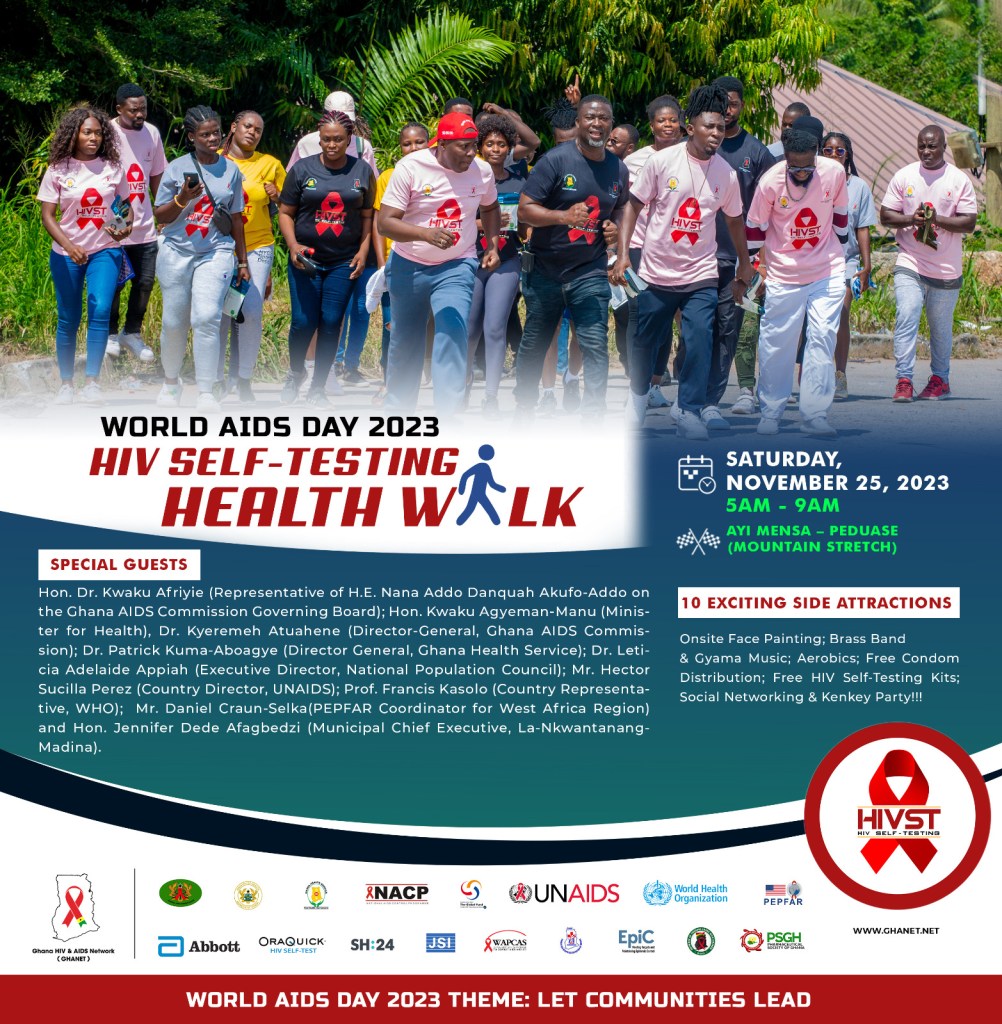
The walk was aimed at creating more awareness of HIV Self-Testing (HIVST) and also to be used to create awareness about the HIV/AIDS pandemic and encourage people to protect and prevent themselves from getting infected.
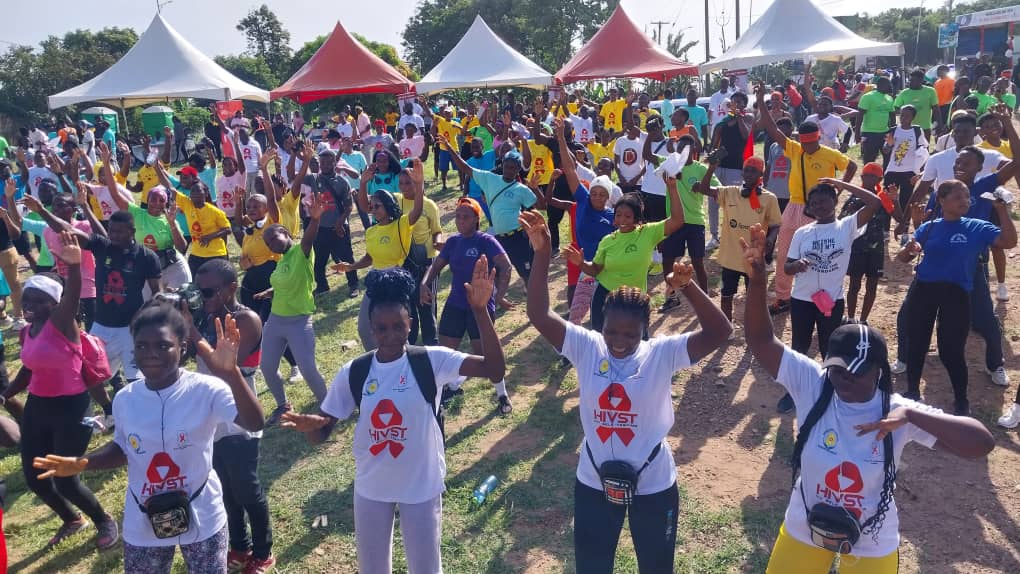
This year, the theme for the World AIDS Day celebration is, “Let Communities Lead” and it is intended to bring up persons who are infected and most affected by HIV and AIDS to take up roles and initiatives that can help end the disease as a public health concern by 2030.
The three-hour walk, which started from Ayi Mensah and ended at Peduase, saw participants climbing the mountain with a determined walk and were treated to intensive aerobics led by a fitness gym instructor to enhance their health.
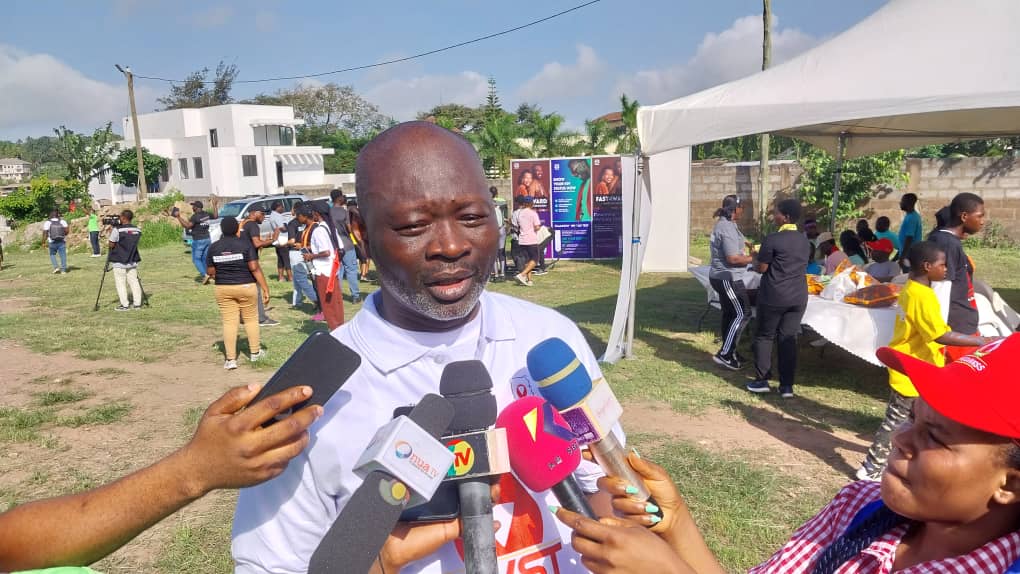
Addressing participants after the walk, a member of the Health Committee of Parliament, Sebastian Ngmeneso Sandare, emphasized the importance for Ghanaians to undergo HIV self-testing to be aware of their HIV status and strongly encourages individuals to know their status, as this knowledge is crucial for receiving timely interventions that can potentially save lives.
Additionally, Mr Sandare entreated Ghanaians to take proactive measures in HIV prevention with the sole aim of ensuring a healthy population for the country.
He revealed that the Health Committee of Parliament has actively engaged with the Minister of Health, Kweku Agyeman Manu, to ensure the timely release of antiretroviral drugs for HIV patients. This initiative aims to facilitate easier access to vital medications for HIV patients.
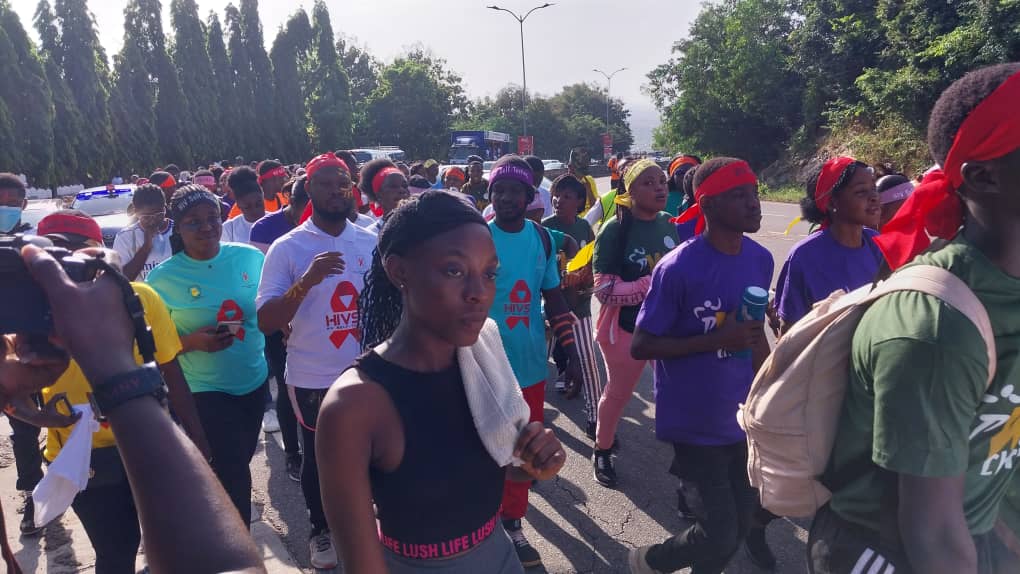
Moreover, the Health Committee is committed to addressing any potential shortages of HIV drugs and necessary commodities and aims to prevent situations where these drugs get held up at the port upon arrival in the country stressing that caring for HIV patients is a top concern for the Health Committee and should be prioritized accordingly.
The Programme Manager of the National AIDS Control Programme (NACAP) in Ghana, Dr Stephen Ayisi Addo, stated that there is a significant number of people living with HIV in the country.
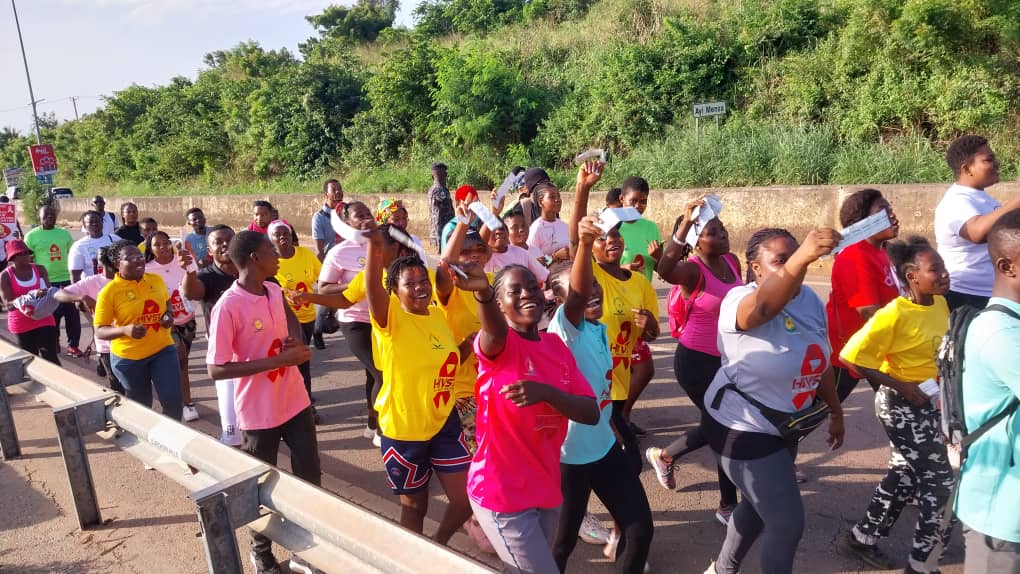
Out of Ghana’s population, approximately 354,000 individuals have been identified as people living with HIV, which accounts for only 72 per cent of the total number. This indicates that there are many Ghanaians who are unaware of their HIV status.
He further emphasized the importance of promoting HIV self-testing, explaining that knowing one’s HIV status is crucial because HIV is no longer a death sentence according to him, with the advancements in treatment options, individuals who are aware of their status can receive appropriate care and live fulfilling lives saying; “your health is your wealth” to stress the significance of taking control of one’s health.
To effectively control the HIV epidemic, Dr Addo, urged Ghanaians to build an inclusive environment where everyone feels comfortable expressing themselves and emphasized the need to combat the stigma and discrimination associated with HIV. Instead of stigmatizing HIV-positive individuals, he encouraged support and understanding.
Dr Addo believes that by doing so, society can work towards a future generation that is free from stigma, discrimination, and HIV.
On his part, the UNAIDS Country Director for Ghana, Hetor Sucilla Perez, also encouraged individuals to participate in HIV self-testing, saying this emerging technology provides a convenient and confidential method for people to become aware of their HIV status, avoiding potential concerns regarding disclosure or stigma.
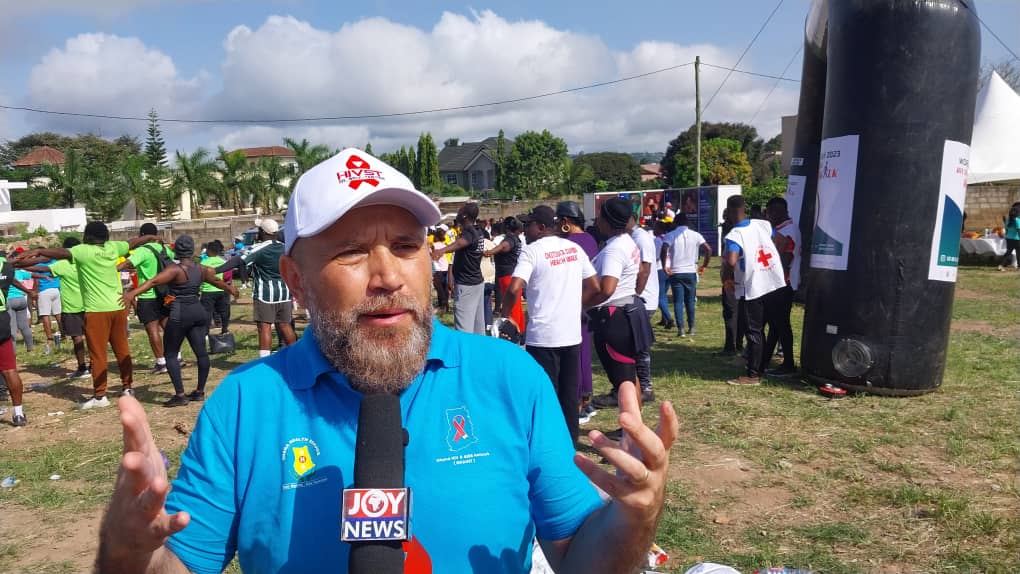
He noted that HIV self-testing offers a novel alternative for individuals who may face obstacles in accessing clinics or struggle with regular visits adding that; by empowering individuals to manage their own testing in the comfort and privacy of their homes, this approach promotes a sense of control while maintaining a secure environment.
“Upon receiving a positive result, it is crucial for individuals to seek healthcare support and guidance. For individuals testing negative, this serves as an opportunity to continue prioritizing their overall health and adopting various preventative measures, such as consistent condom use”. He stressed.
Mr Perez pointed out that the overarching goal of this initiative is to encourage the Ghanaian population to undergo HIV testing, with a vision to end AIDS as a public health concern by 2030. To achieve this ambitious target, widespread testing is paramount.
He emphasized the importance of self-testing promotion and community engagement in fostering a supportive environment where individuals are motivated to seek testing, and treatment, and play an active role in eliminating HIV-related stigma, discrimination, and inequality.
The UNAIDS Country Director for Ghana noted that it is imperative for all Ghanaians to join forces in promoting self-testing and contributing to the HIV response at a community level. By fostering solidarity and encouraging others to undergo testing, seek appropriate care, and actively combat stigma, discrimination, and inequality, we can collectively pave the way towards ending the HIV epidemic in Ghana.






